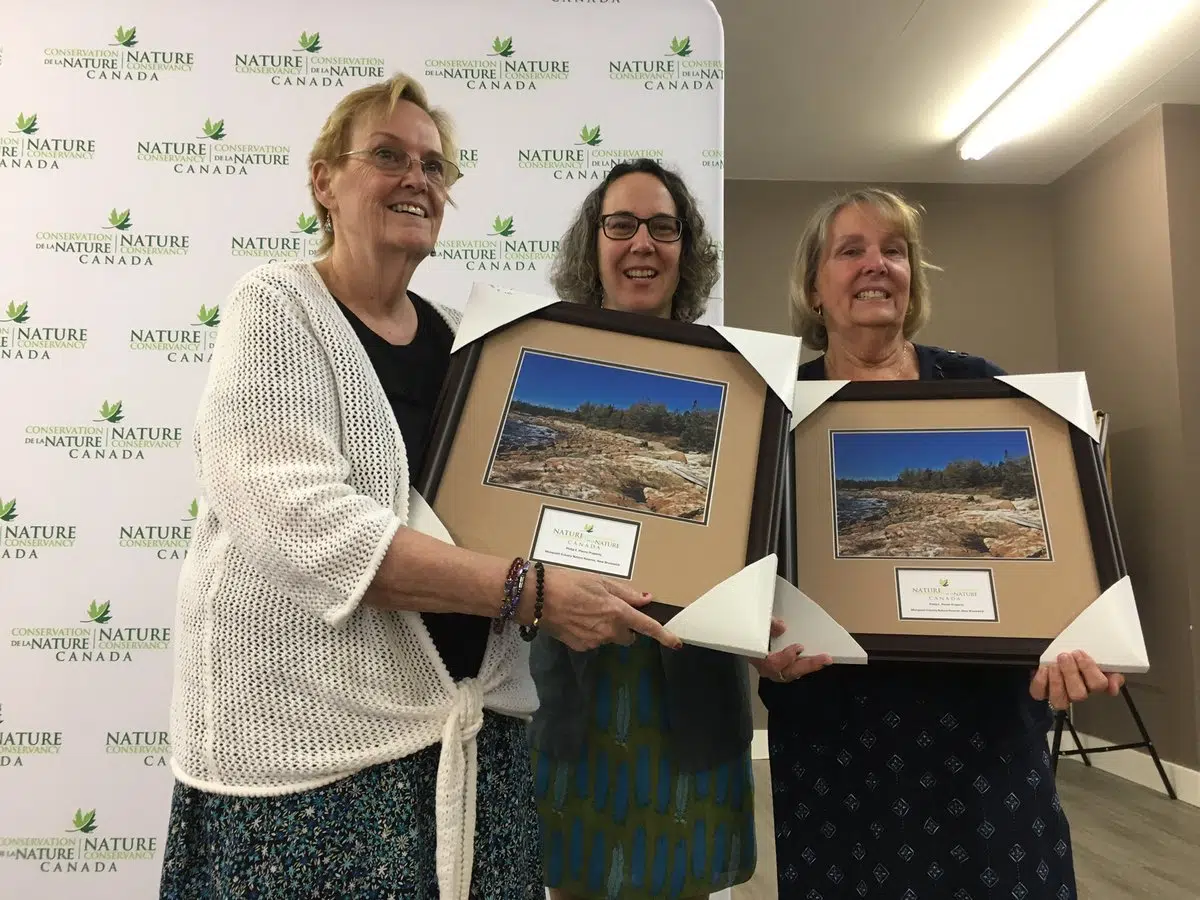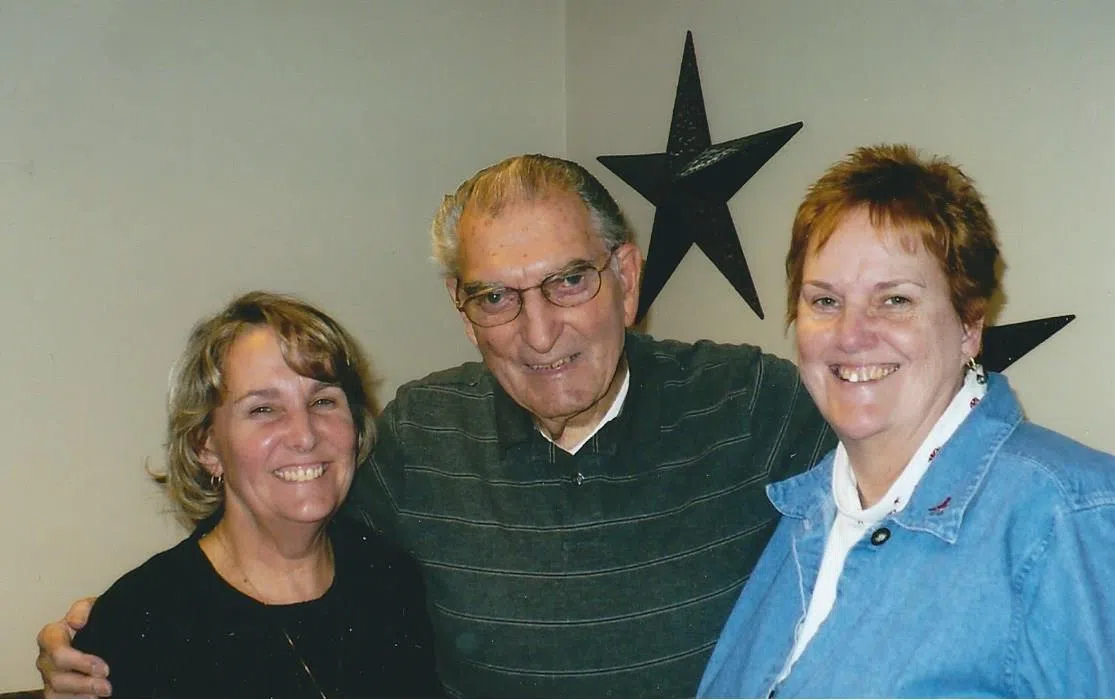
Janine Blaine (left) and Debbie Christiansen (right) each receive a plaque from Paula Noel, New Brunswick program director for the Nature Conservancy of Canada, on May 23, 2019. (Brad Perry/Wave News)
Two sisters are honouring their late father and conserving land at the same time.
Janine Blaine and Debbie Christiansen, who live in Maine, have entrusted 163 hectares of land at Little Musquash Cove to the Nature Conservancy of Canada (NCC).
The newly conserved area will be named after their late father, Philip E. Plante.
After Thursday’s announcement, Blaine said they are proud to honour their father in this way.
“I think he’d be so happy it’s being preserved and it’s going to be open for people to go down and hike and picnic and do whatever,” said Blaine.

Debbie Christiansen (left) and Janine Blaine (right) pose with their father, Philip Plante, in this undated photo. (Submitted)
The sisters have several fond memories of visiting the property as children.
Blaine said one of her favourite things was seeing the water, adding it was a beautiful place to visit and have a picnic.
Christiansen said one of her favourite memories involves seals.
“The seals were very interested in us on the shore and they would follow us as we walked across the shore — there’d be three or four or five,” Christiansen said. “It was awesome.”
Paula Noel with the NCC says the newly conserved area includes two kilometres of undeveloped Fundy coastline. It also features coastal wetlands and older forest, which provide valuable habitat for wildlife. pic.twitter.com/liyonB4thX
— Brad Perry (@BradMPerry) May 23, 2019
With the addition of this new site, the NCC has protected more than 2,230 hectares in the Musquash Estuary — its largest nature reserve in Atlantic Canada.
Paula Noel, the New Brunswick program director for the NCC, said the land is important because of its ecological diversity.
“It includes almost the entire coastline of a large cove on the Bay of Fundy,” Noel said. “It’s got some small but significantly old Acadian forest and a lot of freshwater wetlands, as well as a small salt marsh.”
The Musquash Estuary is located on the Atlantic flyway, which is the most important route for migratory birds in Eastern Canada.
Other species found at Musquash include harbour seal, harbour porpoise, black bear and white-tailed deer.




